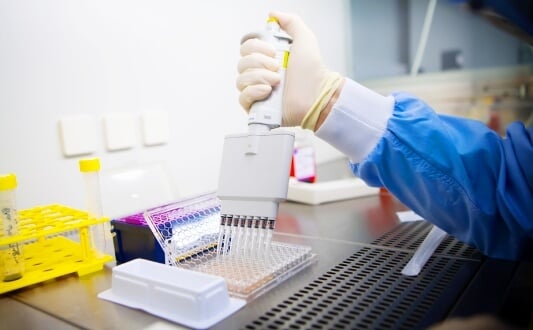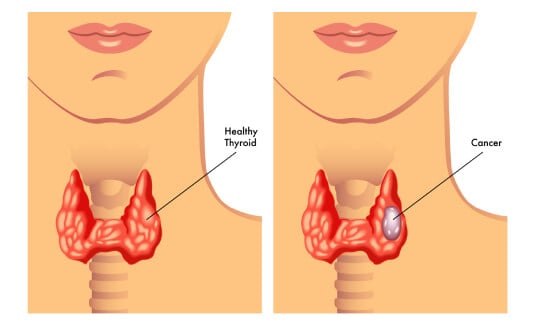Medical Blog About Treatment Abroad
Welcome to our medical blog – it is dedicated to empowering patients with knowledge about global healthcare! We created this platform with the intention to bridge the gap between patients and the medical innovations available globally.
What's Inside: Discover new and rare methods in oncology, immunology, heart surgery, neurosurgery, and other medical fields! Our health travel insights show how medical journeys open new possibilities with advanced treatments unavailable locally, including specialized cancer care abroad.
Who Benefits: This resource is for patients and their families who seek new treatment methods and explore options at leading international hospitals. Those who want to make informed healthcare decisions beyond borders.
Why Read: Booking Health experts provide verified information through patient-friendly articles – they translate complex medical advances into accessible info. Stay current with the latest developments in global healthcare and discover how international medicine can transform treatment outcomes!
Browse our latest articles and take the first step toward better health outcomes!
Diagnosis & treatment - page 7
 Treatment of soft tissue sarcoma with dendritic cells
Treatment of soft tissue sarcoma with dendritic cells
Soft tissue sarcomas are rare malignant tumors that develop in muscles, fat, cartilage, blood vessels, and other non-epithelial tissues throughout the body. With approximately 13,520 new cases expected in the United States in 2025, these cancers represent less than 1% of all cancer diagnoses. While advanced sarcomas differ...
 Revolutionary Immunotherapy Treatments for Prostate Cancer in Germany
Revolutionary Immunotherapy Treatments for Prostate Cancer in Germany
Prostate cancer immunotherapy represents a breakthrough in cancer treatment that's showing remarkable results across various disease stages. Immunotherapy works where other treatments have failed and can no longer stop cancer progression. While traditionally considered for advanced cases, recent clinical evidence demonstrates...
 Treatment of stage 4 pancreatic cancer in Germany
Treatment of stage 4 pancreatic cancer in Germany
Pancreatic cancer (ICD C25) is one of the most common gastrointestinal cancers. More than 300,000 new cases are diagnosed in the world every year. This tumor accounts for 3% of all cancers, which is a fairly high figure. The treatment methods offered in Germany allow for achieving excellent results, even at stage 4 of the pathology.
 Dendritic Cell Therapy for Lung Cancer Treatment in Germany
Dendritic Cell Therapy for Lung Cancer Treatment in Germany
Imagine a treatment that boosts your own immune response to fight lung cancer with precision, causing virtually no side effects while you maintain your daily routine. Dendritic cell therapy offers this possibility to patients at any cancer stage, showing effectiveness rates of 50-65% across various cancer types. With lung cancer affecting 226,650 new...
 Esophageal Cancer: Treatment in Germany
Esophageal Cancer: Treatment in Germany
Esophageal cancer is one of the twenty most widespread cancer types. The disease can develop at any age, but most often it is diagnosed over the age of 60, when treatment options are already somewhat limited by the patient's chronic conditions. Patients who undergo treatment in Germany have a chance to significantly increase...
 Prostate cancer treatment with dendritic cells in Germany
Prostate cancer treatment with dendritic cells in Germany
Dendritic cell prostate cancer treatment represents a groundbreaking immunotherapy approach, recognized by the 2011 Nobel Prize in Physiology or Medicine, awarded to Ralph Steinman. This innovative method can be prescribed to men of all ages and at any stage of prostate cancer, serving as an effective addition to standard treatment....
 Effective Thyroid cancer Treatment
Effective Thyroid cancer Treatment
Thyroid cancer is one of the most rapidly growing endocrine malignancies worldwide. In Europe, the annual incidence reaches 8.3 cases per 100,000 population, while the mortality remains relatively low at 0.33 per 100,000. This situation reflects the effectiveness of modern diagnostic tools and treatment options, as well as the generally...
 Cervical cancer treatment with dendritic cell therapy
Cervical cancer treatment with dendritic cell therapy
Cervical cancer affects approximately 660,000 women worldwide each year, making it the fourth most common cancer among women globally. While early detection typically offers excellent cure rates, advanced cases require innovative treatment approaches. Dendritic cell therapy represents a promising personalized immunotherapy...

